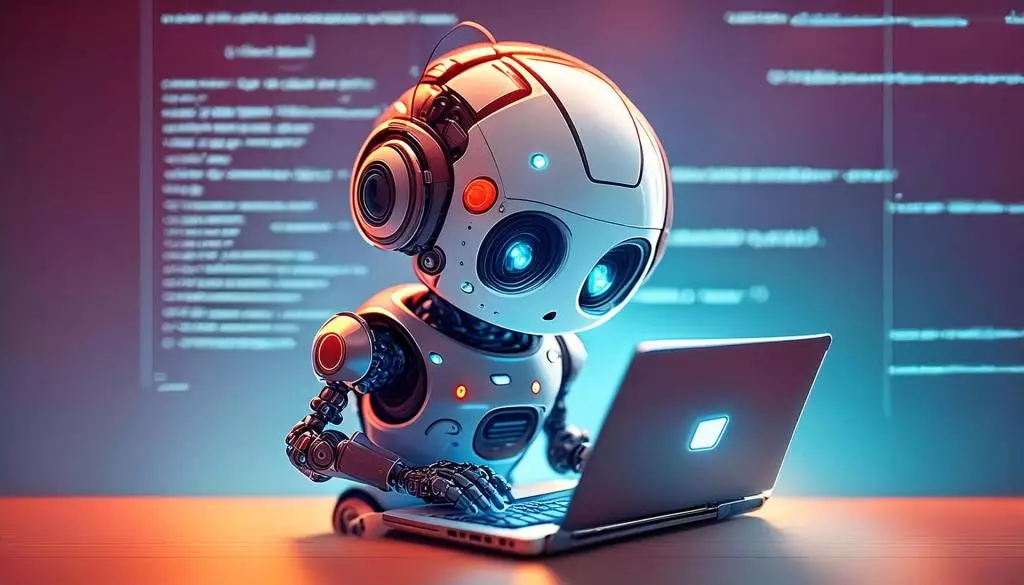In recent years, the landscape of software development has been increasingly influenced by artificial intelligence (AI). Companies are racing to introduce cutting-edge AI-powered coding platforms that promise to changes the way developers work. Among these platforms, Google’s newly unveiled coding agent, Jules, has garnered significant attention. This exploration into AI coding agents reflects a profound shift in the operational mechanics of the software development process, where traditional coding practices are being replaced by agile, AI-driven solutions.
Jules, which first launched as an experimental project in December, is designed to autonomously tackle bugs, generate tests, and facilitate documentation—all in real-time. The concept behind Jules is revolutionary; by enabling developers to delegate mundane coding tasks, they can focus their energy on more complex problem-solving and creative endeavors. This innovative approach to coding not only enhances productivity but also aims to reshape developers’ workloads by integrating AI companionship into their routines.
The Competitive Landscape
Google isn’t alone in this burgeoning arena; the competitive atmosphere has intensified with the introduction of OpenAI’s Codex. Originally launched as a coding model, Codex has evolved into a comprehensive coding agent capable of addressing code-related queries, fixing bugs, and executing an array of tasks satisfactory to developers’ needs. Its collaboration with GitHub marked a significant milestone in the asynchronous coding agent trend, reinforcing the notion that companies must adapt or risk obsolescence.
The collective development of these tools demonstrates a formidable arms race among tech titans. Each firm aspires not merely to advance their technology but to redefine coding standards across the industry. Codex, with its roots in early code completion technologies, has coalesced into an indispensable resource for developers, streamlining what was once an arduous process. As such, the launch of Codex and similar platforms signifies a paradigm shift, steering the conversation toward efficiency and innovative user experiences.
Understanding Vibe Coding
At the heart of this revolution is the concept of “vibe coding,” where coding is increasingly governed by contextual prompts rather than a line-by-line manual coding process. This profound shift liberates developers from repetitive tasks, allowing for a more fluid and intuitive coding experience. Such autonomy afforded by these platforms encourages creativity and experimentation, fostering an atmosphere where anyone can contribute to software development, regardless of their technical expertise.
With big players like Google and OpenAI entering this space, there is an emerging consensus over the potential and promise of these tools to democratize development. Google’s comprehensive suite, including not only Jules but also Firebase, AI Studio, and Code Assist, reflects its commitment to cultivating an ecosystem that nurtures creativity while simplifying the development process. By doing so, Google effectively positions itself as a leader in this AI-driven transformation.
The Human Element in AI-Centric Development
While AI coding assistants symbolize a shift towards automation, the human aspect of software development is still irreplaceable. Developers need to leverage these tools not as substitutes but as enhancements to their skill sets. The real challenge lies in balancing AI capabilities with human ingenuity, intuition, and problem-solving skills. As AI increasingly embraces coding tasks, developers must adapt their skill sets to collaborate seamlessly with these innovations.
Jules exemplifies this collaboration through its asynchronous functionality, allowing developers to assign tasks while focusing on concurrent work. This not only heightens productivity but fosters a continuum of learning and adaptation. As these tools evolve, developers will need to continuously refine their ability to communicate effectively with AI, translating intuitive thoughts into actionable commands that yield productive results.
AI and the Future of Software Development
As the race for supremacy in AI coding platforms heats up, one thing becomes clear: the future of software development may not necessitate the same skill set as it once did. Traditional coding may evolve into something more akin to prompting and managing AI to execute visions. This transition poses intriguing questions about the role of human developers—will they evolve from mere code creators to strategic overseers of intelligent systems?
The buzz around AI coding assistants demonstrates a critical turning point for developers and tech companies alike. With platforms like Jules and Codex pushing the boundaries of what’s possible in code generation and problem-solving, the potential for greater innovation and creative expression in software development is limitless. Thus, the era of AI-powered coding platforms offers a thrilling glimpse into a future where software development is not just efficiently managed but dramatically enhanced by the intelligence of machines.


Leave a Reply